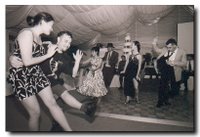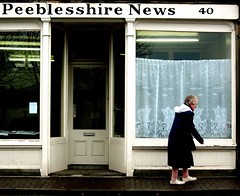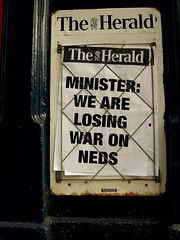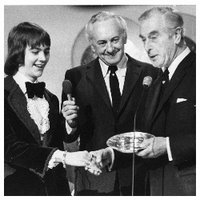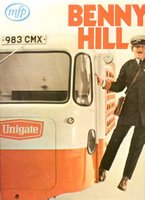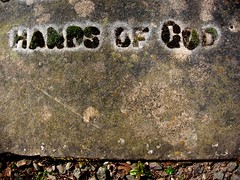
I do not believe in December, a month blighted by Christmas. In the days of my childhood it was dark and cold, and nature was dormant. Nothing happened, save the frost, and the mist, and the general sense of drear. In Scotland, Christmas was noted quietly, without fuss, but the Bacchanalian excesses were saved for the ominous cacophony of the bells on Hogmanay,after which there were whisky and kisses and tears, though not always in that order. My mother, Mrs Elder, (or Ma'am) used to refer to the chimes of midnight as Hell's Bells, but she averted any ill-consequences by hosing the house with bleach and removing to the bunker any item which might have been construed as decadent. My father, Mr Elder, often came into this category, not least because of his habit of filling "The Mecca" (an earthenware hot water bottle made by Grimwades Ltd, of England) with advocaat in order to fend off the cold.
In recent years, however, the devils of commerce have hijacked the whole festive business. Christmas begins in September and only stops with the opening of the Jenners sale, though that is less of an event than it used to be; being reduced - since the takeover by Frasers - to a scrummage over a cheap vest.
As it is now all-but impossible to ignore the siren call of shopping, I have taken to hibernating during the Christmas period. Generally, I take to my bed at the first sighting of an advertisement for Terry's unpleasant Chocolate Oranges, and re-emerge when the scrabbling of urban foxes at the door grows insistent - a sure sign that the streets are littered with the discarded carcasses of force-fed bubblyjock.
I am awake now, but not yet awakened. To nurse myself back to sentience, I have been reading the poems of Mr Edwin Muir. Today, I read Scotland's Winter, and was reminded, for some reason, of the Senior Retainer, Mr Jack McConnell, and his colleagues in that Council of Despair, the Holyrood parliament.
But they, the powerless dead,
Listening can hear no more
Than a hard tapping on the floor
A little overhead
Of common heels that do not know
Whence they come or where they go
And are content
With their poor frozen life and shallow banishment.
.jpg)






